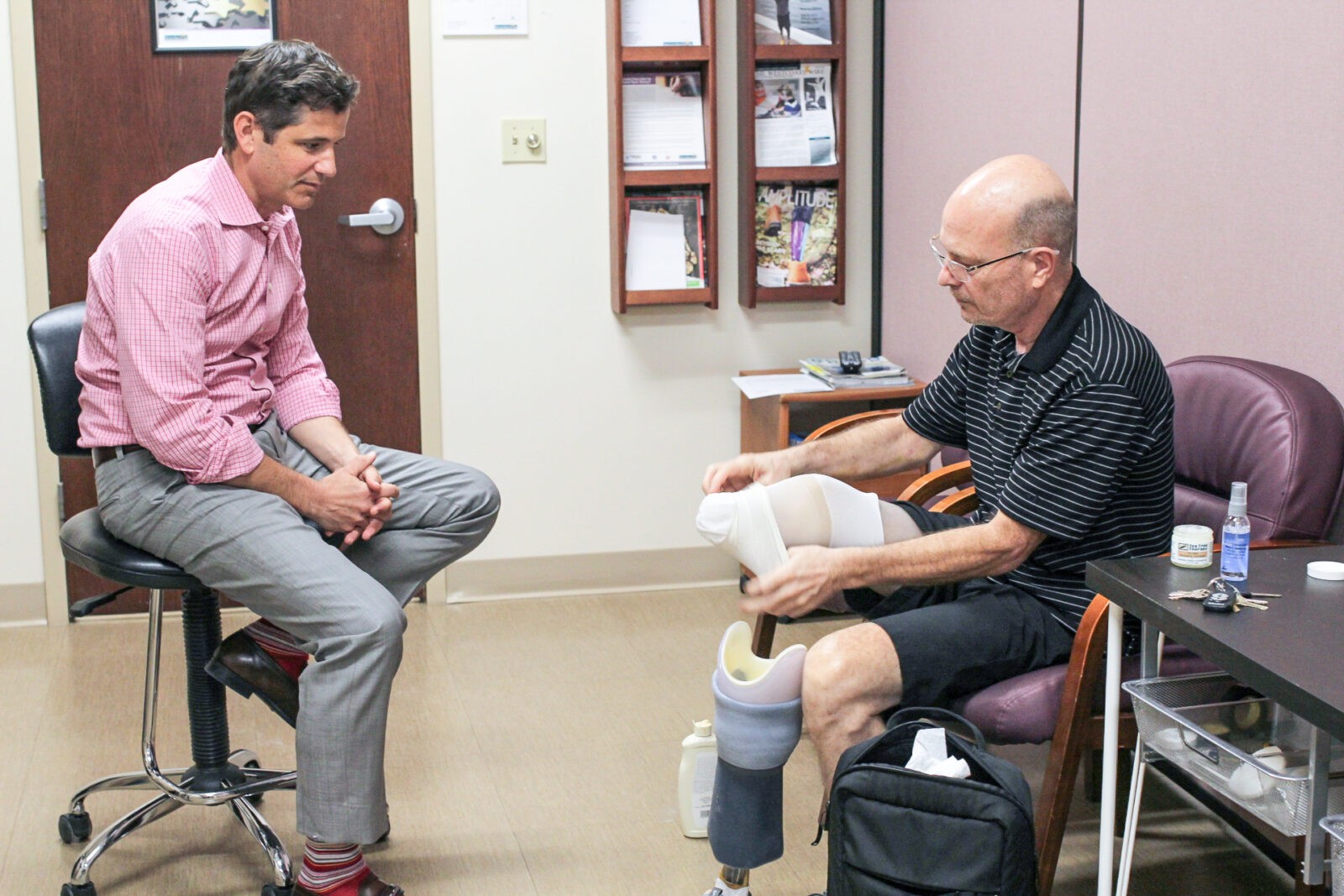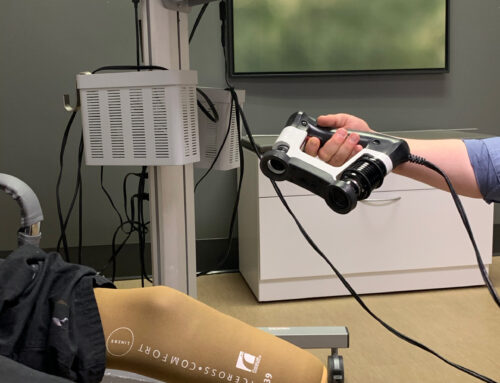
Getting the most out of your prosthetic device
As an amputee, there are many things to consider about your prosthetic device wear and care. Just like any other device you use regularly, your prosthetic device needs proper care and maintenance to stay in peek condition. By taking care of your device and its components, it will function optimally, giving you the best results.
Ensure that you are getting the best use out of your prosthetic device by asking yourself the following questions.
How old are my prosthetic gel liners and socks?
Are my prosthetic gel liners or socks showing signs of excessive wear or tear?
Are my prosthetic gel liners or socks beginning to feel loose against my skin?
Does my prosthetic socket fit correctly?
Here’s what you should know:
Liners that may appear to be in good physical condition can begin to stretch over time. As a result, air can get in between the skin and liner. However, liners should be air tight when in contact with the skin. This stretching of the material can eventually cause the liner to lose contact with certain areas of the skin, creating a poor fit. In more drastic cases, it can cause the prosthesis to slide off the residual limb completely. If you use your prosthesis daily, you should be replacing your liner once or twice per year and cleaning the inside of it daily.
As one of your most important supplies, the same principle applies to prosthetic socks. They can also become too worn and stretched. If this happens, you may have to wear extra socks to compensate for the stretched socks becoming too thin. Socks can become over-stretched for a few reasons. The most common reasons are usually the result of the user wearing them daily and not rotating them. You should aim to change socks with fresher/newer socks periodically, and/or wash the socks periodically.
If socks are replaced regularly, the user will have a more consistent fit. Excessive washing and drying of prosthetic socks can also decrease their longevity, because it will cause them to shrink more dramatically. This often causes the user to pull more excessively on the socks when donning them, causing them to thin out more rapidly. Cotton socks stretch dramatically, whereas wool does not. All prosthetic socks need to be washed periodically, but not excessively.
If you have a dramatic weight loss/gain, a socket replacement or full prosthetic replacement can be deemed medically necessary. Your prosthetist can code for a new foot in a higher or lower weight category. They can also code for a socket replacement because of volume loss/gain in the residual limb(s). You need to show that you regularly use your device, and your PCP has to add this to your medical records for the insurance to consider it.
Our team can help answer your questions and ensure that your insurance benefits are being correctly utilized. Contact us via phone or email today.






